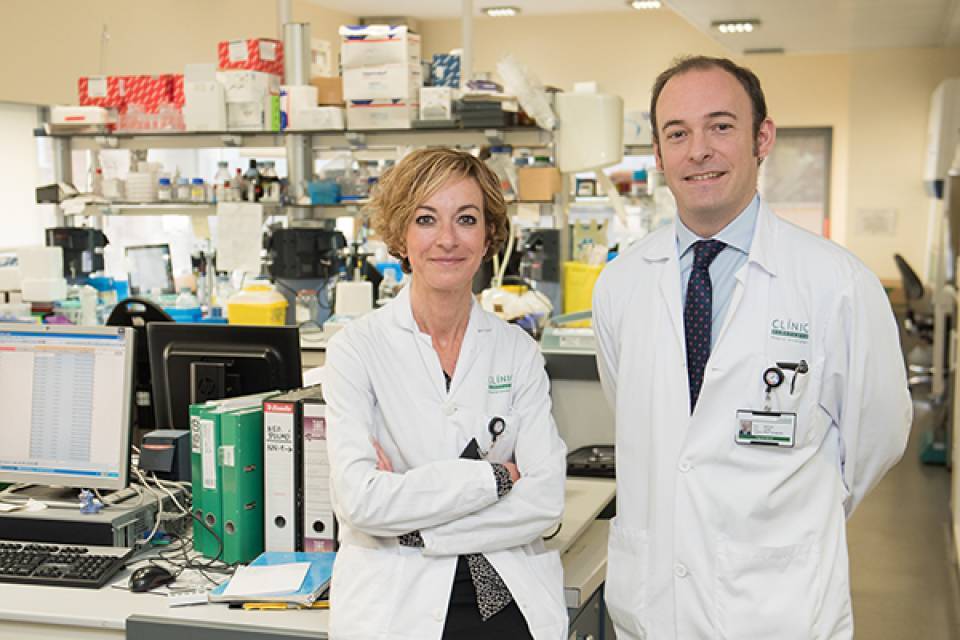Lung cancer is the leading cause of cancer death worldwide and, in Spain, is the third most common tumor. In 70% of the cases the disease is diagnosed in very advanced stages, since it does not shows symptoms. In the last 10 years different molecular markers have been identified, opening the door to the development of targeted therapies for this type of cancer. This is the case of the genes named ALK, Ros1 and RET. Patients who have alterations in these genes may benefit from individualized and oral-administered biological drugs that improve clinical outcomes over conventional chemotherapy.
Thus far, genetic alterations were detected individually by conventional histopathological techniques that require analyzing each alteration individually and with a certain degree of subjectivism. Since the amount of sample that can be extracted from the lung in a biopsy is very limited, alternative modalities of analysis are required to detect multiple alterations at the same time.
In the article, published in the journal Clinical Chemistry, researchers have validated the capacity of a genomic platform to detect alterations in three genes and have apply it in clinical practice. To do this, they have compared the tumor data obtained by gene expression (nCounter of Nanostring) with the conventional histopathological data. The advantage of this new technology is that it requires much less sample to do the analysis, that it is faster and more objective in obtaining the results and that it detects more than 50 possible alterations in the three genes which sometimes remain hidden when current microscopy techniques are used.
"This way, tumors that previously resulted negative for these alterations, now could be positive. This has a very important implication in the clinical practice, because if these alterations are present they can be inhibited with a specific treatment orally administrated which improves survival and quality of life for patients. The alternative if the test is not performed is chemotherapy", explains Dr. Noemí Reguart. "At the moment we have validated a test with three genes, and soon we will add 7 more," she adds.
Dr. Aleix Prat concludes that, "this study takes a very important step towards personalized or precision medicine in lung cancer. At our hospital we have the technology and the test to carry out these analyses routinely in the clinical practice in all patients with advanced lung cancer."
Article reference:
Noemí Reguart, Cristina Teixidó, Ana Giménez-Capitán, Laia Paré, Patricia Galván, Santiago Viteri, Sonia Rodríguez, Vicente Peg, Erika Aldeguer, Nuria Viñolas, Jordi Remon, Niki Karachaliou, Esther Conde, Fernando Lopez-Rios, Ernest Nadal, Sabine Merkelbach-Bruse, Reinhard Büttner, Rafael Rosell, Miguel A. Molina-Vila, Aleix Prat
DOI: 10.1373/clinchem.2016.265314 Published January 2017

